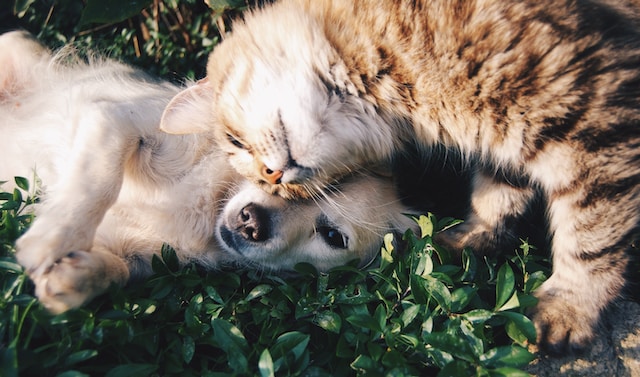As a pet owner, it’s essential to keep your furry companion happy and healthy. That means visiting the veterinarian regularly for checkups, creating a balanced diet plan, and recognizing any changes in behavior that could indicate an underlying health issue. While these may be obvious signs of illness, there are sometimes less noticeable clues that indicate something is wrong–and it’s important to watch for them. In this post, we’ll go over 7 ways you can tell if your pet might be suffering from an illness or injury and needs to see the vet ASAP!
 |
| 7 Signs That Your Pet Needs to See a Veterinarian ASAP [image: unsplash] |
Drinking a lot more water than usual
Your furry friend has been hitting the water bowl a lot more frequently lately, huh? Well, it's definitely worth paying attention to. Maybe they're just feeling extra parched, but it could also be a sign of an underlying health issue. Don't worry too much, though - there are plenty of potential causes that aren't anything too serious. Best to keep an eye on things, maybe even jot down how much water they're drinking each day so you can have a clearer picture of what's going on. Ultimately, you know your furry little buddy best, and taking the time to track their habits will help you keep them happy and healthy.
Doesn't eat as much or is not interested in food
If your little furry friend isn't showing much interest in their food lately, it's important to address the issue to make sure they're staying healthy and well-nourished. While reluctance to eat can be caused by a number of things, such as dental problems or illness, it's often a behavioral issue that can be fixed with patience and a few simple changes to their routine. Try offering them smaller meals more frequently throughout the day, or switching up their diet with some new and exciting foods. Remember, your pet's health is always a top priority, so don't hesitate to seek veterinary advice if the problem persists.
Coughing, sneezing, or displaying other respiratory issues
If your furry companion seems to be struggling with respiratory issues, it's important to seek proper medical attention as soon as possible. Coughing, sneezing, and other signs of breathing problems can be indicative of a range of issues, from allergies to more serious conditions like pneumonia or lung cancer. Although it's tempting to try and wait it out or self-diagnose your pet's symptoms, this can be dangerous and even life-threatening in some cases. If you're looking for a comprehensive veterinary care experience for your furry friend, consider visiting AHCC Madison where you can expect compassionate and professional treatment. Take the time to make an appointment with your veterinarian and get your pet the care they need to feel better as soon as possible.
 |
| [image: unsplash] |
Increased aggression, lethargy, and depression
There could be any number of reasons for these changes, from underlying health issues to environmental factors. The important thing is to pay attention and seek help if needed. After all, our pets rely on us to advocate for them and ensure they're happy and healthy. So, whether it means a trip to the vet or simply spending some extra quality time together, let's make sure our pets know they're loved and supported.
Urinating more frequently
If your pet is urinating more frequently, it could be a sign of a urinary tract infection or other health issues. It's important to take them to the vet right away to get a proper diagnosis and treatment plan. While it may be tempting to try home remedies or ignore the issue, it's best to seek professional help to ensure your furry friend gets the care they need.
Limping or having difficulty getting up from lying down
Unfortunately, pets cannot tell us what's hurting, so it's important to pay close attention to their behavior. Have you noticed your pet limping or favoring one leg? Are they having trouble getting up from a lying down position? These are all signs that your pet may be in pain. It's important to take action and seek veterinary care promptly. Your trusted veterinarian will be able to diagnose the issue and provide the necessary treatment to get your pet feeling good as new again.
Vomiting or having diarrhea
First off, make sure they have plenty of water to help prevent dehydration. You might also want to switch to a bland diet of boiled chicken and rice for a few days. Try to avoid giving your pet any table scraps or treats during this time, as this could further upset their stomach. If the symptoms persist or worsen, it's always best to consult your veterinarian to get professional advice and treatment options.
If your pet is showing any of the symptoms listed above, it's important to seek veterinary attention as soon as possible. With proper care and treatment, we all hope that your furry friend will live a healthy, happy life!

No comments:
Post a Comment
Please Leave a Comment to show some Love ~ Thanks